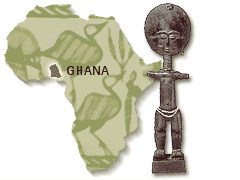 |
GHANA |
 |
|
|
However, on February 24, 1966, the Ghana armed Forces, in cooperation with the Police Service, overthrew the CPP Government in a coup led by Colonel Emmanuel Kotoka. A pattern of fledgling civilian governments aborted by the intervention of the armed forces has dogged Ghana for much of the time ever since. The leading figure in Ghanaian politics today is Flight Lieutenant Jerry John Rawlings, who first came to prominence as leader of coups in 1979, and again in 1981. Rawlings initially promoted radical economic and social policies but, as Ghana's fiscal problems worsened during the 1980s, the government turned to the IMF (see Trading Brief). After introducing a new constitution, President Rawlings and the ruling party, the National Democratic Congress, submitted themselves to the verdict of the electorate in 1992, and won both the presidency and a huge majority of legislature seats, although most opposition parties boycotted the election claiming widespread irregularities. The Congress' principal rival is the new Patriotic Party, led by Professor Abu Boahen, who came second behind Rawlings in 1992. The next elections are scheduled for 2001. |
![]()
| OK Raids -
okraids@okraids.bf Tél : (226) 50.38.88.63 / 96 Fax : (226) 50.38.55.46 |
 |